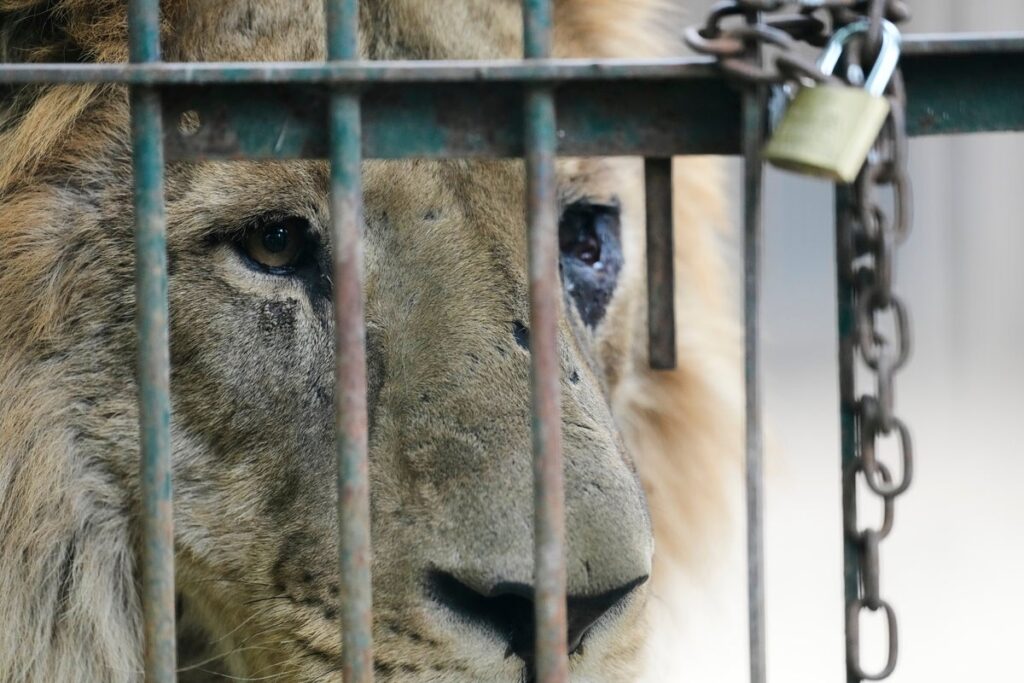
UPDATE: Dozens of neglected animals at the infamous Lujan Zoo in Buenos Aires, Argentina, are finally receiving urgent veterinary care, marking a critical turning point in their plight. A total of 62 big cats and 2 brown bears, previously trapped in appalling conditions, are being evaluated and treated after years of neglect.
This monumental rescue operation, initiated by the international animal welfare organization Four Paws, follows a formal agreement with Argentine authorities to improve the welfare of these animals. The zoo, notorious for allowing visitors to interact with wild animals, was shut down in 2020 due to safety concerns, leaving the remaining animals to suffer in cramped cages.
Veterinarians from Four Paws are currently on-site, working tirelessly to assess each animal’s health. Many have endured severe neglect, with poor nutrition and untreated injuries leading to dire medical conditions. During a visit last week, the team discovered that the once-thriving population of big cats at Lujan had dwindled from over 200 to just 112 when Four Paws first arrived in 2023.
“It was really shocking,” said Luciana D’Abramo, Chief Program Officer at Four Paws. She described overcrowded cages where multiple lions were confined together, highlighting the extreme stress and hostility among the animals.
As of now, the team is conducting emergency surgeries and administering medications. One tiger had to be treated for a severe tail injury, while others are undergoing root canals to address infections from broken teeth. The rush to provide care is critical; many animals have not been vaccinated or sterilized, which puts their health at further risk.
The rescue operation is unprecedented for Four Paws, which has previously managed to evacuate animals from conflict zones and other dire situations. Dr. Amir Khalil, the veterinarian leading the mission, emphasized the scale of this operation: “This is one of our biggest missions … not only in Argentina or Latin America, but worldwide.”
Veterinarians are working around the clock. As they assess the animals, plans for their transfer to larger wildlife sanctuaries are being finalized. These sanctuaries will provide the animals with natural habitats, vastly different from the claustrophobic cages they have known.
Some former zookeepers, like Alberto Díaz, who dedicated decades to caring for these animals, expressed mixed feelings about the rescue. While they are relieved to see improvement in the animals’ conditions, they reflect on the zoo’s former popularity with tourists. “Time changes, laws change, and you have to adapt or get left behind,” he remarked.
This urgent rescue operation highlights the critical need for animal welfare reform in Argentina. The agreement between Four Paws and the government also includes a commitment to end the sale and private ownership of exotic felines, addressing ongoing issues of wildlife exploitation across the country.
As the situation develops, Four Paws continues to call for support and awareness. The organization’s efforts not only aim to save these magnificent creatures but also to inspire broader changes in animal welfare policies. Stay tuned for the latest updates on this urgent rescue mission.






